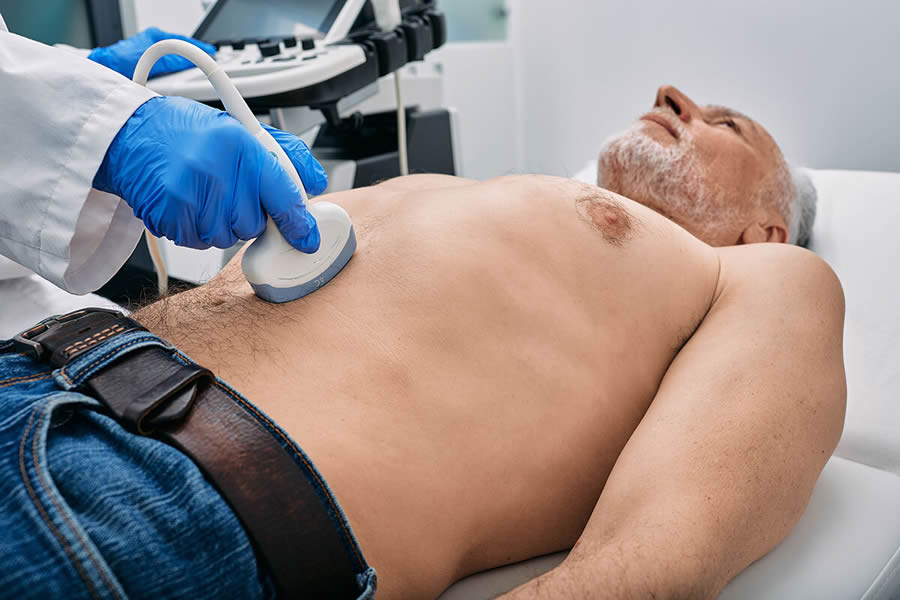
An abdominal aortic aneurysm is a condition that can pose a significant danger to our health, often without any noticeable symptoms. Early detection and intervention are critical to preventing life-threatening complications. At Cardiovascular Specialists, we help patients diagnose and treat a wide range of common cardiac conditions including abdominal aortic aneurysms. Continue reading for a more in-depth understanding of AAA’s symptoms, diagnostic methods, and treatment options.
An abdominal aortic aneurysm occurs when the abdominal aorta, the primary blood vessel supplying the lower body, becomes enlarged in a localized area. This enlargement is often caused by atherosclerosis, genetics, or lifestyle factors. Understanding the risk factors associated with AAA, such as age, gender, smoking, and family history, can help in identifying individuals who are at higher risk of developing the condition.

One of the most concerning aspects of AAA is its silent nature. It often does not present noticeable symptoms until it reaches a critical stage. However, there are some signs to be aware of, including abdominal or back pain, a pulsating mass in the abdomen, and occasionally gastrointestinal disturbances. Failure to diagnose and treat AAA can result in severe complications, such as rupture, internal bleeding, and life-threatening emergencies.
A timely and accurate diagnosis of AAA is needed to initiate appropriate treatment and prevent complications. Several diagnostic tests are available, including ultrasound, computed tomography angiography, and magnetic resonance angiography. Ultrasound imaging allows visualization of the abdominal aorta and assessment of the size and condition of an aneurysm. CTA provides detailed images, while MRA uses magnetic fields and radio waves to create high-resolution images. Routine screenings, particularly for high-risk individuals, play a crucial role in detecting AAA at an early stage.

The management of AAA depends on factors such as the size, growth rate, and overall health of the individual. For smaller aneurysms, a "watchful waiting" approach may be employed, involving regular monitoring and lifestyle modifications to control risk factors. However, larger or rapidly growing aneurysms may require surgical intervention. Options include open surgical repair and endovascular aneurysm repair, a less invasive procedure. The choice of treatment should be made in consultation with healthcare professionals, considering the specific circumstances of each individual case.
Reducing the risk of developing AAA often requires a variety of lifestyle modifications and prevention methods. Key measures include:
If you’re worried about your risk of abdominal aortic aneurysm, call or visit Cardiovascular Specialists today. Our team of cardiologists is ready to help with our extensive range of services. From diagnostics to creating a customized treatment plan, our professionals can ensure that you get quality care every step of the way. Contact our office for more details or to schedule an appointment.